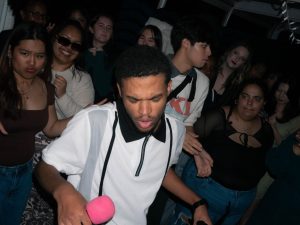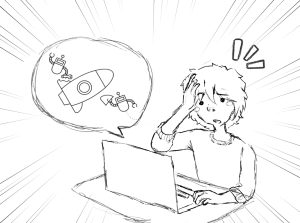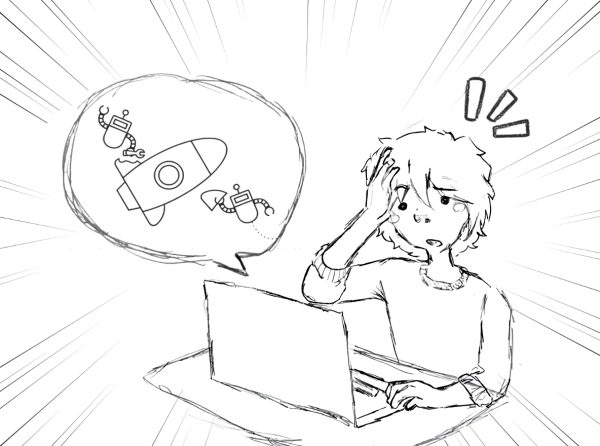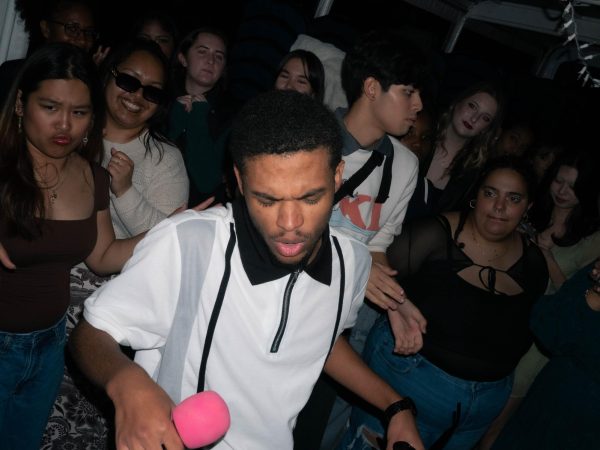No human being is illegal
Words need to inform and empathize, not tear down
November 6, 2019
Language is ever-changing and evolving. Every year, new words are added to the dictionary and words that we thought were sufficient, and have been using for years, are changed. We decide that certain words should not be used in particular situations, some words are only allowed to be said by some people and some words should never be said. ‘Illegal’ is one of those words that should not be used in certain situations, specifically in reference to immigrant people.
The first time I was exposed to the word ‘undocumented’ was when I applied for DACA (Deferred Action for Childhood Arrivals) in High School. I sat in my immigration lawyer’s office, 15 years old and terrified because my secret was no longer a secret. For 20 years of my life, I have kept quiet about my identity and only shared my secret with trusted friends.
Living in a country where you are unwanted is scary. Every day, I lived in constant fear of being exposed, found out, deported and of losing everything I knew.
The lawyer’s office was covered with signs that read “no human being is illegal.” I had never before been exposed to the word ‘illegal’ before that moment. My parents told me and my siblings that we could not talk about being from another country. They explained that if we mentioned it to anyone, we would be sent back and would be forced to leave everything behind.
I did not ask questions and I did not think about it often. I did not have to understand, I just did as I was told. I never spoke about where I was really from and, whenever I was asked, I would simply lie. I could not face exposing myself or my family to danger. I did not fully grasp the idea that I “didn’t have papers” until I reached the age where all my friends were applying for jobs. Even after I had been accepted and granted protection by DACA, which allows me to legally work and stay in the United States, I was terrified to tell people I was born in Paraguay and immigrated at a young age.
It is important to note the danger and violence that individuals face as a result of this seemingly simple word choice. The Merriam-Webster’s Dictionary defines the adjective ‘illegal’ as, “not according to or authorized by law.” Synonyms include “unlawful,” “illicit,” “criminal,” “felonious,” “wrongful,” and “lawless.” Every time someone makes the choice to call an individual illegal, they participate in the dehumanization and demonization of said individual. Their entire existence is marked as illegitimate, inferior and criminal.
A human being cannot be illegal. Drugs are illegal. Drinking alcohol before the age of 21 is illegal. However, the individuals behind these actions aren’t illegal. Why then, when individuals enter a country unlawfully, are they labeled illegal?
This term is racialized and forcibly placed on Latinx individuals, stemming from a racist and white-supremacist ideology. The entire racial group is categorized as dangerous, inferior, and criminal. Labeling a person as illegal, and not just simply their actions, is reinforcing the idea that all Latinx individuals are “rapists” and “bad hombres” as the current President has said.
My first personal encounter with being labelled as illegal left me shocked, offended and hurt. It was by someone I considered a friend.
I stepped back for a moment and considered ignoring it, but decided instead to tell her that I was undocumented — not illegal. I was not able to articulate why it was so hurtful, why it was wrong and why it felt like an attack.
But the only words that I was able to get out were, “No. I’m undocumented,” and I carried on with our conversation.
I thought that would be the end of the discussion, yet somehow she managed to find a way to bring up my citizenship in every conversation. This persisted for the rest of my freshman year at Seattle Pacific University and every day I dealt with microaggressions from a “friend” (who no longer attends SPU).
Every time I was called “illegal” by a self-proclaimed friend, I was reminded of my inferiority. I was reminded that I’m still unsafe and that I’m still living in a constant state of fear and danger.
Changing the language we use for immigrants from illegal to undocumented is one small step towards ending the dehumanization of the immigrant population.
No human being is illegal.



























































































Jose Karlos • Jan 14, 2020 at 12:27 am
Yeah, sorry but that still means illegal. Some people like my parents and myself worked hard to get into the country through proper means meaning we waited for visas, went through numerous interviews, took our time to fix all of our documents. We did every LEGAL thing we can to get into this country and we are LEGAL in this country.
We can’t suddenly change the verbiage just because you “feel” offended when in reality, it’s just the truth. Not an opinion. The truth. Not an attack. Not a micro-aggression. The truth.